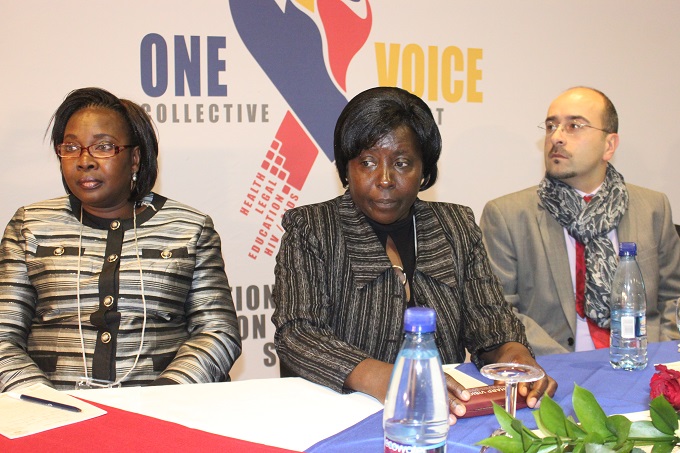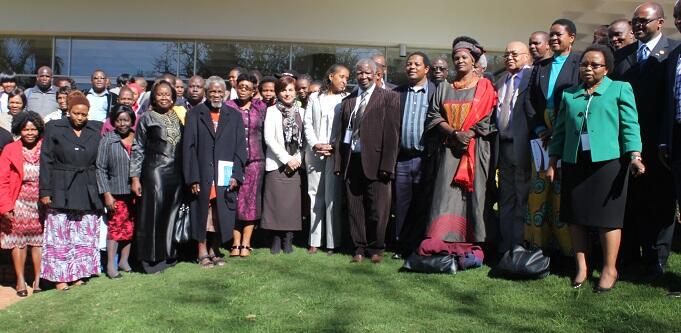MBABANE, Swaziland - “Collective Efforts – One Voice”, an apt theme for the first national multi-sector Conference on Violence in Swaziland, hosted by the Deputy Prime Minister’s Office, in collaboration with National Emergency Response Council on HIV and AIDS (NERCHA) and UNFPA, UNDP, UNICEF, WHO, UNAIDS and UNESCO. The conference was held at the Royal Swazi Convention Centre from the 14th – 17th July 2015, and brought together key government and civil society stakeholders working in the area of violence prevention and response, to share sector specific information and experiences, explore what works, highlight challenges and make recommendations for a strengthened and more coordinated violence prevention and response effort.
Violence is a multi-dimensional issue that calls for a collective multi-sector response, and the conference is an opportune platform for sectors to discuss challneges, gaps and opportunities to strengthen the national GBV response" - Deputy Prime Minister, Paul Dlamini
It is against this backdrop that the national dialogue was organised, to bring together the multiple sectors engaged in the GBV response in Swaziland and to provide a platform for them to share information and experiences on their work in the area. Key sectors represented included the law enforcement, judiciary, health, social welfare, education, NGOs and community based responses. The conference was enriched by the participation of regional and international experts who shared on violence interventions and innovations that have worked in their contexts.The weak coordination of national gender-based (GBV) prevention and response efforts remains one of the country’s major challenges, with the implementation of legislation, policies and programmes largely fragmented across sectors, with minimal coordination. Limited up-to-date data on the drivers of GBV also hinders targeted programming to address the issue. Also hindering the national GBV response is the protracted process of the enactment of the Sexual Offences & Domestic Violence Bill, first introduced for parliamentary debate in 2009, and most recently in March 2015.

One of the key national issues that were highlighted at the conference was the need for a strong government-led national coordination mechanism. Also noted was the need to link GBV interventions to health sector responses to allow for more survivor-centred response. Strengthened national capacity to engage men and boys in GBV prevention was also recommended, as well as a call for the enactment of the Sexual Offences & Domestic Violence Bill 2015 and finalization of a National Strategy for Violence Prevention & Response. Attended by about 250 average delegates, the conference was officially opened by the Deputy Prime Minister, Honourable Paul Dlamini and officially closed by the Minister of Justice and Constitutional Affairs, Honourable Edgar Hillary. In his official opening remarks, Mr Paul Dlamini underscored the fact that violence was a multi-dimensional issue which called for a collective multi-sector response. He stated that the conference was an opportune platform for sectors to discuss gaps and challenges that still exist in the national violence response, and encouraged delegates to explore integrated solutions to the problem. He concluded by stating that his office will continue to strongly advocate for the enactment of the Sexual Offences & Domestic Violence Bill 2015.


